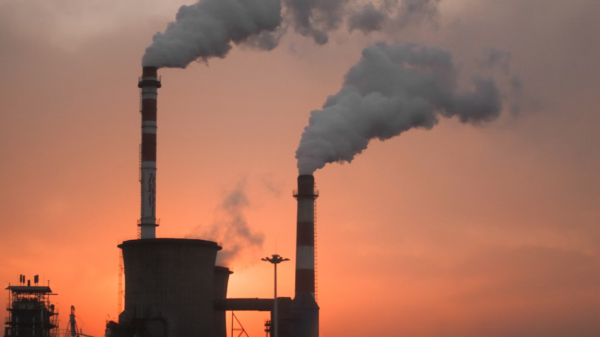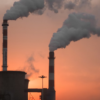Staff writer Mehmet Temur compares the global response to the Covid-19 pandemic and climate change. If the impacts are catastrophic in both cases, why aren’t we acting with equal urgency?
During the pandemic, the international community showed enormous determination to slow the spread of the virus. Most countries immediately introduced quarantines and others followed suit after a short time. This was despite the fact that the quarantines would significantly damage the economies of each country that initiated them. Politicians and the public were aware of this but, realising the lack of alternatives, accepted the outcome.
Millions of pounds were spent on vaccine research. Wealthy countries even donated and distributed these vaccines to the developing world through COVAX, recognising that this was in the global interest. Once more, there was little public or political backlash to these economically costly policies. In essence, the fundamental threat that the virus posed to humanity’s health made these sacrifices possible.
But let’s compare this example to the global response to climate change. Any policy proposed by governments around the world to slow down climate change is met with resistance. Opponents cite economic concerns to oppose decarbonisation or electrification. Many politicians argue that it is unthinkable to build on-shore wind farms, unaffordable to phase out fossil fuels at any reasonable rate and that the go-to ‘tightening-the-belt’ measure should be to remove the green levies.
The same governments who funded vaccine development enthusiastically and use it as a source of national pride are reluctant to sufficiently support research into low-carbon technologies. Both Coronavirus and global warming are existential threats which need an immediate global response. What is the underlying reason for this difference between the efforts of governments regarding the pandemic and climate change?
The Illusion of a Distant Future
The answer is multi-faceted. The pandemic immediately and directly threatened our health, restricted our liberties and changed how people had to see each other. In contrast, many people believe that the consequences of climate change are in the distant future and won’t make people ill or change our way of living. As a result of this way of thinking, it is now common to consider environmental issues like reducing emissions or protecting ecosystem as things we do to feel good about ourselves, rather than a collective effort to prevent an upcoming catastrophe. This is the ‘tragedy of the horizon’.
Unfortunately, this mindset of optimism is nothing but an illusion. We can already see the effect of climate change through rising sea levels, which threaten to contaminate our drinking water, obstruct farming and destroy coastal communities. Climate change carries significant health risks too, especially to our liver, lungs, and brain. Related phenomena like smog and particulate matter choke our cities and shorten our life expectancy. Life will be significantly different if the earth warms 3°C above pre-industrial levels. Disastrous heatwaves, flooding, droughts and other extreme weather events will become commonplace. Everything from what you eat to how you dress will have to change.
So no: climate change is not far-off, it will make you ill and life will not continue as normal. While climate change is a slow-burning disaster, it is a disaster nonetheless. It is time to start acting like it.
Economic Concerns
The elephant in the room: can we afford to overcome it?
The estimates for the cost of preventing climate change range from $300 billion to $131 trillion. That’s a lot. However, humanity was able to afford to spend trillions to slow down the spread of a virus with a 1% mortality rate – $9 trillion in the first three months of the pandemic in the form of fiscal support. By contrast, climate change could cause 83 million deaths by 2100; 14 times more than the pandemic did.
However, it is also important to highlight the way in which the money should be spent. The Covid-19 stimulus packages contributed to record inflation around the world and we must learn from the mistakes of pandemic panic spending. Unlike the emergency pandemic response, we don’t need to throw everything at the wall and see what sticks.
The money should be spent with oversight from United Nations Framework Convention on Climate Change (UNFCCC) secretariat and Intergovernmental Panel on Climate Change (IPCC) to ensure that the measures taken will actually aid the fight against climate change. Furthermore, the IMF and the World Bank should advise about the possible economic side-effects that this spending may cause to ensure that it generates ‘green’ economic growth where possible. This is all eminently possible.
Political Concerns
Imagine you are cooking something. Even if all the ingredients are prepared, without turning the oven on the dish is wasted. Politics is just like an oven. It does not matter if the state possesses all requirements to act on climate change, including budget and geographic conditions, as without political will it is simply not going to happen.
It is crucial for politicians to be incentivised on taking action. Excluding a few countries, a strong public opinion always (eventually) translates to political action. Hence it is essential for both public and private institutions to organise events and raise awareness of climate change. It’s time to recognise that this is in all of our interests.
What else? One word: education. Climate change is an intergenerational problem, and it is therefore crucial to teach the younger generations about the values discussed here. It is true that global warming is taught in our schools but this suffers from the same superficial optimism that much of the public debate does.
Education on climate change is too superficial and feels more like a manners class about how to act in the environment. Do not litter, turn off the lights, do not waste water and so on. These are certainly helpful but they are simply not enough. Schools should also organise trips to see the areas affected by climate change to ensure that the new generation understands the danger is real. This will not only enable the new ‘climate-aware’ politicians to take more concrete action, but it will also contribute to having the favourable public opinion needed to take necessary actions. Climate change is a civic problem – let us properly teach our children about its impact.
It is not contested that the necessary measures to stop global warming will be costly. This is the price we have to pay for centuries of environmental flippancy. But in the context of the effort and money spent on the pandemic, it makes sense to use our economic resources in the fight against climate change for all the same reasons.


















